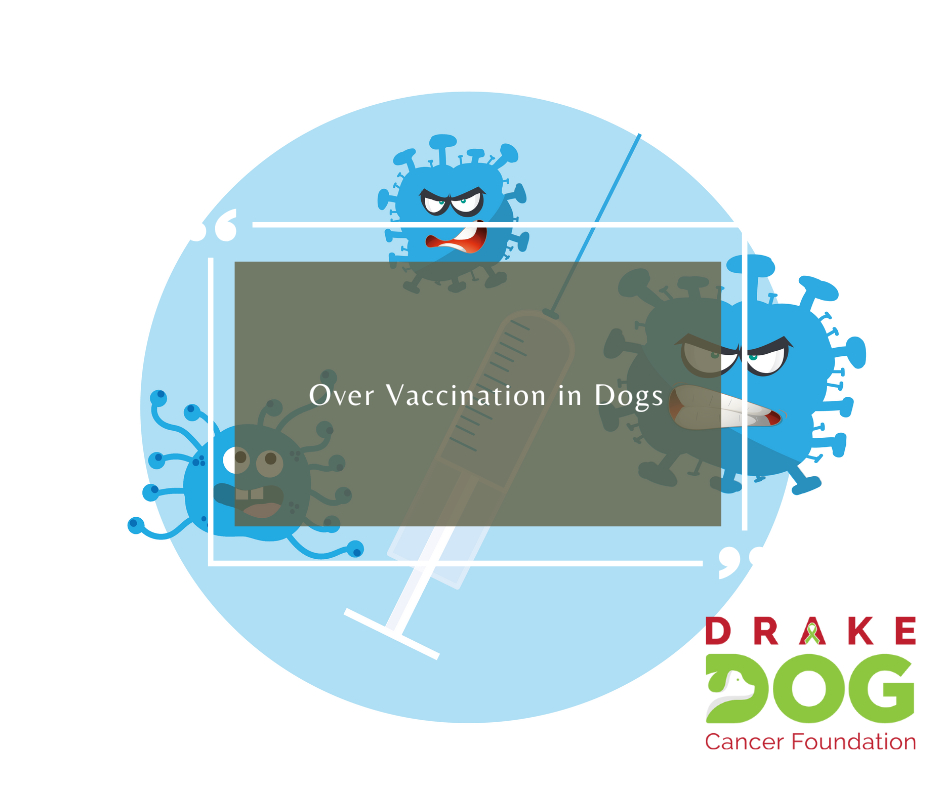Do vaccines really protect your dog? Yes and no. Overvaccination in dogs is a huge problem that can lead to numerous health issues. If you titer your dogs, vaccines can be helpful.
Why Over-Vaccination Can Harm Your Dog
Every dog owner is terrified of infectious diseases. For your dog, parvovirus and distemper can be crippling or even fatal.
You immunize your dog because you want to keep him safe. However, you might not be aware that this protection has a price.
Vaccinations for dogs can often be just as damaging as the illness they are intended to prevent.
Numerous health issues, ranging from a small fever to anaphylactic shock and cancer, can be brought on by vaccination.
Therefore, it’s crucial that we only vaccinate our pets as needed.
Your dog will be protected from contagious infections via vaccination (in most but not all cases). However, immunization will also put your dog at a higher risk for autoimmune disorders that can be fatal as well as cancer.
Vaccines have the power to both save and claim lives.
In order to prevent your dog from infectious disease, the goal is to administer the fewest number of vaccines necessary. and pray that he never gets autoimmune illness.
But most veterinary clinics don’t operate like this.
Why Vets Are Still Over-Vaccinating
Over 20 years ago, a very important research piece was published. A veterinary immunologist named Dr. Ronald Schultz studied every major vaccine in over 1,000 dogs. His findings were the same every time.
Dr. Ronald Schultz confirmed:
“Vaccines for diseases like distemper and canine parvovirus, once administered to adult animals, provide lifetime immunity.”
Veterinarians were immunizing dogs and cats every year at the time this study was published. No one knew how long the vaccines would be effective at that time. Once the study was published, the veterinary associations knew these vaccines were good for life.
They realized over vaccination in dogs was a real issue. In 2003, vaccination guidelines changed to every three years, but they didn’t explain how they reached the decision. Vaccination every three years can still be detrimental to our dogs’ health.
Excessive Vaccinations
It was the same with the most current 2017 Canine Vaccination Guidelines. Veterinarians continue to observe the three-year gap despite several studies demonstrating how excessive and risky this practice is. The issue with the AAHA’s too-aggressive vaccination schedule is made worse by the fact that the vaccination recommendations are just that—recommendations.
This implies that veterinarians can provide vaccinations whenever they choose, disregarding science and safety. And a significant vaccine producer claims that they do. They claim that a staggering 60% of vets still administer vaccinations annually.
According to the AAHA, vaccines make up to 14 percent of the average practice’s income. This means the veterinarians who aren’t vaccinating annually lose out on that income.
In the 1980s, tying vaccinations to the annual visit became popular, and in the 1990s, it was a common way to do things. Now veterinarians don’t want to stop.
It’s not good news. According to evidence, the majority of veterinarians are either unaware of the dangers of vaccinations or are unwilling to read the research. And your dog—not your veterinarian—is the one this harms.
Titer Testing
Up until recently, vaccination regimens were solely based on theories. A titer blood test can determine whether your dog is already immune to the disease or whether more vaccinations are actually necessary. Unfortunately, too few veterinarians and dog owners are using this vital tool.
In-House Titer Tests
There are two in-house titer tests that are available to veterinarians. This means the test is done right in your vet’s clinic and you get results quickly.
TiterCHEK and Vaccicheck are the two simple tests your vet can do right in their clinic and they cost about the same amount as a vaccine would cost you.
Unfortunately, veterinarians take their time using titer tests, just as they take their time changing their vaccination schedules. These internal tests have been offered for a while, but many vets continue to disregard them. Some veterinarians prefer to just provide the vaccine, but that particular shot has the potential to harm your dog significantly and permanently.
As the dog’s owner, you have options. You have the option of letting your veterinarian overvaccinate your dog, or you can opt to safeguard him and request a titer test.
Move on to a different veterinarian if your current one is unwilling to perform a titer test to safeguard your dog.
Read more:
2017 AAHA Canine Vaccination Guidelines*

4 thoughts on “Over Vaccination in Dogs”